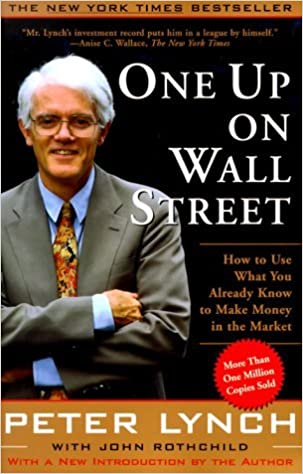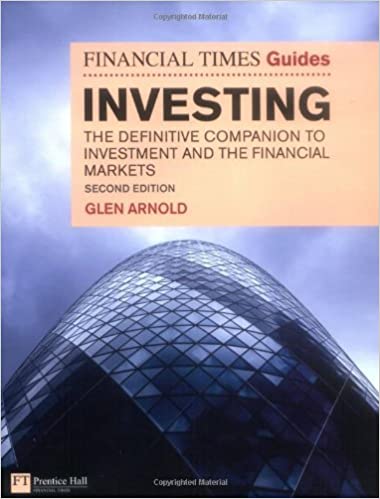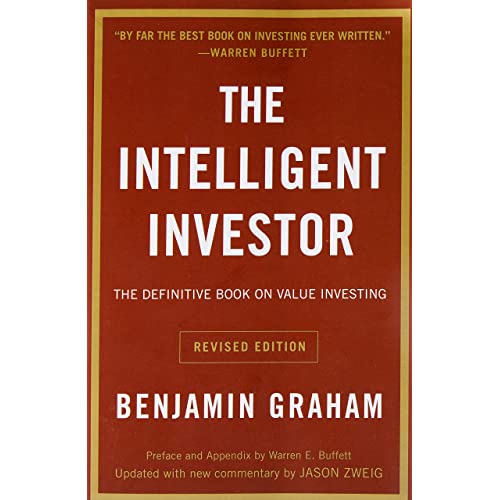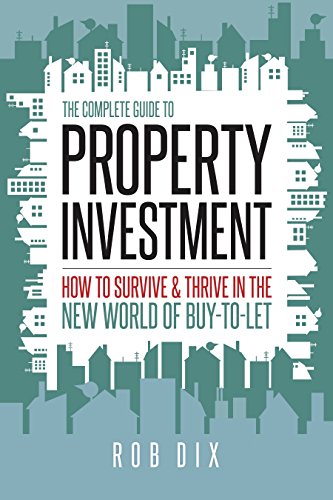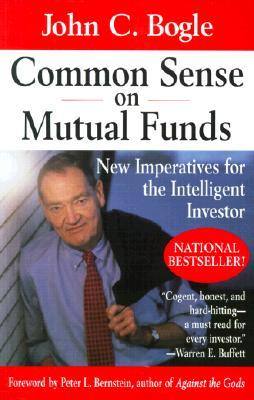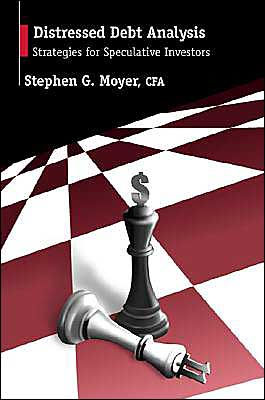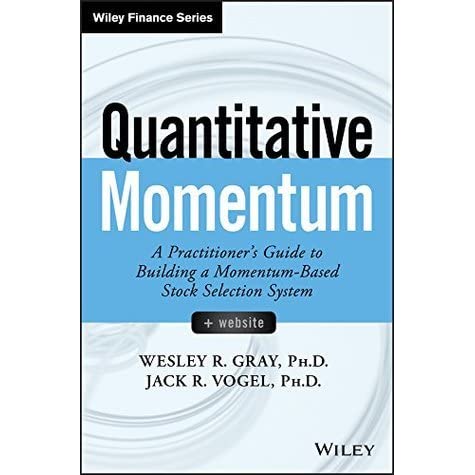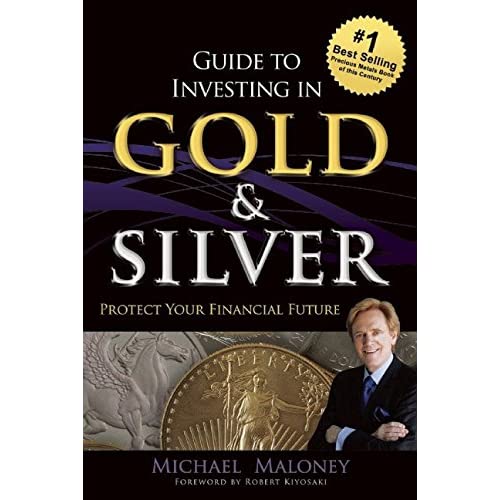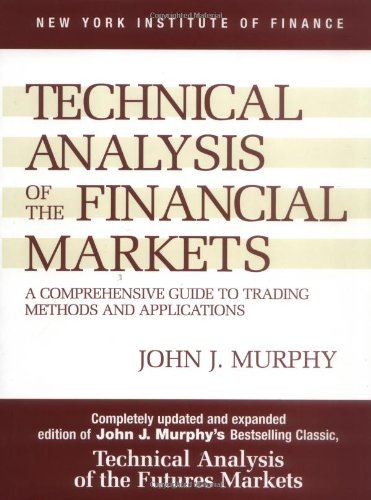Investing Books UK – 2025 Book Reviews
One of the ways to hone in on your investment skills is to read the experiences and thoughts of those that excel in the arena in the form of a good old fashioned book.
By reading the right book you can learn a great deal about the technical side of investing, or strategies for different markets. However, there are a plethora of books available in the investment sector, so identifying the right investing books can be tricky.
In this article, we’ve put together a list of some books on investing to help educate yourself in the financial sphere.
-
-
10 Investing Books – List
Here’s an overview of the top 10 investing books of 2021. We discuss each book in more detail further down.
- One Up On Wall Street, by Peter Lynch and John Rothchild: A book for beginners.
- The Financial Times Guide to Investing: The Definitive Companion to Investment and the Financial Markets, by Glen Arnold: Book about investing in stocks.
- Intelligent Investor: The Definitive Book on Value Investing – A Book of Practical Counsel, by Benjamin Graham (with commentary by financial journalist Jason Zweig): Value investing book.
- The Complete Guide to Property Investment: How to Survive and Thrive in the New World of Buy-to-Let, by Rob Dix: Real estate book.
- Common Sense on Mutual Funds: New Imperatives for the Intelligent Investor, by John. C. Bogle: Mutual fund book.
- Distressed Debt Analysis: Strategies for Speculative Investors, by Stephen G. Moyer: Distressed debt book.
- Quantitative Momentum: A Practitioner’s Guide to Building a Momentum-Based Stock Selection System, by Wesley R. Gray, Jack R. Vogel, David P. Foulke: Quantitative book.
- Guide To Investing in Gold & Silver: Protect Your Financial Future, by Michael Maloney: Gold investing book.
- Technical Analysis of the Financial Markets: A Comprehensive Guide to Trading Methods and Applications, by John J. Murphy: Technical book.
- The Intelligent Investor, by Benjamin Graham: Overall investing book.
Investing Books for Beginners – One Up On Wall Street
First a little background on the authors. Peter Lynch is one of the most renowned investors in recent decades and thus – his status in this arena is legendary. Lynch was manager of the Magellan Fund (a humongous investment brokerage), as well as a philanthropist and investor.
John Rothchild was a very popular financial writer and has co-authored over a dozen finance and investing books. This one is an absolute must for anyone who is new to the world of investing. The book has a huge cult following and with good reason. This timeless classic was published in 1988, with a second updated edition released in 2000.
End to end the book is easy to follow, whilst it certainly isn’t dumbed down. The book educates investors on how to make wise choices and pick the right stocks (although shouldn’t be construed as investment advice). Along with John Rothchild, Peter Lynch offers step-by-step instructions on compartmentalizing “long shots and no shots”. The way he suggests doing this is to research the company’s financial records as well as having a good understanding of which numbers really matter.
A bit of an ongoing theme in this book starts a few pages in when Lynch states “great investors don’t invest in what they don’t understand.” A great nugget of wisdom for any investor. Lynch believes in focusing the attention on a company’s ethics and roots, rather than the ups and downs in the market. When talking about how to evaluate yourself as a stock picker he points out that investing is an art and not a science.
This book divides companies into six types; turnarounds, asset plays, fast growers, slow growers, cyclical and stalwarts. Lynch advises investors to ignore the theorising about interest rates and fluctuations in the market. He believes that in the long term, your investment portfolio will thank you for it.
Another popular investing book for beginners is Market Wizards by Jack Schwager, and another great book for new investors is The Boglehead’s Guide To Investing by Taylor Larimore.
Books on Stock Investing – The Financial Times Guide to Investing: The Definitive Companion to Investment and the Financial Markets
The author is a professor of finance, experienced investor and businessman. Glen Arnold is the author of several finance books such as ‘The Financial Times Guide to Value Investing’, ‘Corporate Financial Management’ and ‘The Handbook of Corporate Finance’.
This is one of the best-selling investing books in the United Kingdom and aims to teach anyone and everyone how to be successful in the stock market. Arnold believes that investing isn’t just reserved for the wealthy. This book takes you on a journey through all things stock investing, starting with the fundamentals such as clarification about what investors do and why companies need them.
As a reader, you are taken through the essentials when it comes to buying and selling shares. Financial securities, unit trusts and ETFs also get a mention Glen Arnold also explains in detail the various types of investment products used by investors. Whilst also taking the reader through how to select companies to buy shares in. He also covers the importance of understanding accounts and how to manage your own professional portfolio.
This book is a stock investing bestseller and runs through various financial markets and how they work. Arnold guides you through believing in your personal judgment thus investing with self-belief and skill. The last book update added various sections such as online investing and a glossary of investing jargon. It also describes how the markets really work in the real world, covering a plethora of subjects like how to manage your portfolio, accounting tricks, investment clubs, spread betting, key investment measures, and ratios.
This author has also concentrated on busting some stock investing myths like stock trading is the playground of the rich and mega-wealthy. Another one of the books on investing in stocks is ‘You Can Be A Stock Market Genius’ by Joel Greenblatt.
Value Investing Books – Intelligent Investor: The Definitive Book on Value Investing – A Book of Practical Counsel
The book’s author Benjamin Graham is considered the father of value investing and has inspired and educated people from all over the world. He is also the author of ‘The Interpretation of Financial Statements’ and ‘Securities Analysis’. The original publication of this investment bible was in 1949 and has been featured on investors’ bookshelves ever since.
In fact, renowned business tycoon, investor, and philanthropist Warren Buffett once said that Intelligent Investor by Benjamin Graham was “By far the best book on investing ever written.”. Graham’s philosophy is to teach investors how to establish long term investment strategies and learn the art of ‘value investing’. This is going to help you in shielding yourself from a considerable mistake in the market.
Benjamin Graham’s wise strategies have been proven over the years with various developments in the market. The revised edition of this classic remains respectful to Graham’s original words and integrity. However, infamous financial journalist Jason Zweig has added some relevant commentary. He draws a comparison between examples in the original text and financial news in more recent years.
Even in today’s volatile market Graham’s fundamental policies still help investors stay on the right track. And despite updates on chapters in the latest edition, his teachings are still so relevant that they remain untouched from 1949. As we touched on, Jason Zweig merely added commentary, and alongside this tried to make it clear to readers how Graham’s knowledge can still be applied to investing today, over 70 years later.
It is largely believed that this book is one of the most important books you will ever read on not only investing but also how you can achieve your financial objectives, so this is one of the most popular investing books out there.
Real Estate Investing Books – The Complete Guide to Property Investment: How to Survive and Thrive in the New World of Buy-to-Let
The witty author of this book has written some of the most popular property investment books in the UK, including “Beyond The Bricks” and “Property Investment For Beginners”. Not only this, but he co-hosts a hugely successful investing podcast called ‘Property Podcast’. Thanks to the ever-changing real estate market, changes in the tax landscape, and rising costs, investors might need to change tactics slightly to be successful.
This book was written in order to help investors gain some valuable information and priceless insight on real estate investing. Dix starts by illustrating, using real-life examples, a range of action plans you can use to achieve a variety of investment goals. Next, the book takes readers through a blow by blow account of every single aspect of real estate investing. From research, funding, and purchasing, to the management of your investment properties.
As a property investor, you’ll need to create a strategy that matches up to your personal investment aspirations. This book will tell you everything you need to know about funding your real estate investments. As well as laying out a step-by-step method that you can use to help you to decide what you should invest in. Rob Dix has shared some of his own experiences, as well as the knowledge he has drawn from working closely with the most accomplished investors in the UK.
One of the many tips in this book is how as a property investor you can use the ‘property cycle’ to your advantage. This investing book covers how to create a lucrative portfolio, based on the long term. This uses techniques such as exit strategies, how to survive a recession, and scaling up. Whether you want a passive income, a new career or are just looking to secure your retirement, this book will guide you on creating a real estate investing strategy.
It will help you in circumnavigating your way through the real estate landscape and come out winning. Another popular real estate investing book is; ‘Property Magic: How To Buy Property Using Other People’s Time, Money And Experience’ by author Simon Zutshi.
Mutual Fund Investing Books – Common Sense on Mutual Funds: New Imperatives for the Intelligent Investor
John. C. Bogle is known for founding Vanguard Group – an enormous mutual fund company. He also invented ‘the retail index fund’. The man is widely considered to be a bit of a hero without a cape in the investing industry. It’s fair to say that Bogle only writes about subjects he has extensive knowledge of. He advises on how investors should navigate their way through not only mutual funds but also the huge variety of investment types.
Renowned investor Warren E. Buffett chimed in on this book saying “Cogent, honest, and hard-hitting. A must-read for every investor”. Bogle’s book outlines a logical plan for mutual fund investing and explains that the average Joe investor is disconnected from their money.
The book doesn’t come from a negative place, but it has been said that the author holds no punches when it comes to America’s financial sector. The book is specifically focused on the mutual fund industry, so you won’t find anything about asset location or the stock market. The start of the book is educating the reader on the various ways that costs are important. Later on, Bogle discloses how mutual funds are formulated, and that they are made to subtly mislead shareholders.
The author’s writing style is detailed but easy reading. Having said that it’s not exactly ‘beginners’ level of simple. You are going to need to concentrate to take it all in, but it is very insightful. The writer believes in focusing on the long term, self-discipline, and diligent saving.
Another book about investing in mutual funds is ‘Investing in Mutual Funds: How to Create Wealth and Financial Freedom by Investing in Mutual Funds’ written by Christopher Han.
Distressed Debt Investing Books – Distressed Debt Analysis: Strategies for Speculative Investors
The writer of this book – Stephen G. Moyer, was an Analyst and Portfolio Manager at Pacific Investment Management Company (PIMCO) in the Distressed Credit Group. Moyer has more than two decades of experience in corporate finance and investment analysis. This is widely thought of as the distressed debt bible, offering readers practical and theoretical awareness. Having said that the book is not overly technical that you need a degree to read it. Instead, it’s more conceptual and informative.
Moyer outlines the wider financial space of the reformation and primary process of investment strategies and investment analysis. Using a variety of real-world representations and case studies to draw attention to important notions and issues. This book addresses the entire knowledge requirements of professionals and investors in a world with an increasing number of financially stressed companies. This read is aimed at both newbies to finance as well as the more experienced.
The first part of the book is fairly rudimentary and as it goes on Moyer begins to go into much more detail. Discussing distressed asset valuation and an in-depth look at the bankruptcy procedure. Stephen Moyer is a pro and offers some very insightful commentary on things like pre & post-bankruptcy valuation strategies, fundamental areas to control, legal bounds of control, negotiation leverage power.
The book is really popular with equity investors, and although some of the points and reforms inside have since changed – the majority of it is still useful today when it comes to having a good grasp of how the credit world works. The cost of buying this book has risen significantly over the last decade, although that shouldn’t put you off. If anything, that’s a sign that the book is more popular than ever. It’s a good way to brush up on your knowledge of bankruptcy and the quantitative essentials.
Quantitative Investing Books – Quantitative Momentum: A Practitioner’s Guide to Building a Momentum-Based Stock Selection System
Wes Gray’s book brings quantitative momentum investing from Wall Street to individual investors’ hands. The author’s previous book ‘Quantitative Value’ offered readers a methodical value strategy of hedge funds. Now it’s momentum investing’s turn. This is a proven system that enriches the bankroll of some of Wall Street’s most knowledgeable investors, on a regular basis.
The first part of this book will teach you what momentum investing isn’t. It is not an abstruse academic concept or a focus on growth investing either. It might be familiar to you if you have utilised an asset allocation strategy previously. However, in this book, Wes and Jack go into great detail to provide insight into how momentum works well on its own as a stock selection strategy.
If you happen to be fascinated by systematic investing then this book is a must-read. Systematic investing seems good in theory but it can fail when put into practice. Momentum investing, however, is a systematic strategy with legs. You are sure to add a few more tools to your portfolio. Contrary to popular belief ‘premiere anomaly’ is not value, it is momentum.
The general feeling of this book is ‘the trend is your friend’, reading this investment guide is going to guide you on putting together your own strategy from beginning to end. If you want to learn all about momentum investing and find out how you can push it beyond asset allocation – this kind of investing enables people like you to borrow a big Wall Street hedge fund strategy for your portfolio.
If until now you thought that momentum was about purchasing stocks that have gone up – then you might just find this book an epiphany. Another one of the most widely read investing books based on quantitative investing is ‘Quantitative Trading with R: Understanding Mathematical and Computational Tools from a Quant’s Perspective’ by Harry Georgakopoulos
Gold Investing Books – Guide To Investing in Gold & Silver: Protect Your Financial Future
Let’s start by telling you a little bit about the author – Michael Maloney. He is widely considered to be one of the leading masters when it comes to precious metals, monetary history, economics, and cycles. As the founder and CEO of one of the biggest gold and silver bullion dealers GoldSilver.com and the creator of WealthCycles.com – he knows a thing or two about gold.
If you wish to have a better understanding of gold investing then this book is a great place to start. Maloney guides readers through the art of buying and selling these metals in an easy-to-understand way. The book is written in four sections. In the first, the author takes you on a journey through the history of money. In the second and third sections, the writer talks about the current and possible future of money.
The fourth section is possibly the most interesting to some would-be gold investor, as he guides you on how to invest in gold and silver, as well as pitfalls to watch out for. This book is not considered a step-by-step guide. But, for anyone interested in investing in precious metals, it is a must-read.
Maloney also covers the age-old feud between currency and money and talks about his in-depth knowledge of the economic system. After reading this book you will never look at the economy in the same way again. Another book on investing in gold is ‘All About Investing In Gold’, by John Jagerson and S. Wade Hansen.
Technical Investing Books – Technical Analysis of the Financial Markets: A Comprehensive Guide to Trading Methods and Applications
The writer of this investing book – John J. Murphy, is the former director of Merrill Lynch’s Technical Analysis Futures Division. He is also an analyst for CNBC. Murphey also penned the book ‘The Visual Investor and Intermarket Technical Analysis’. Some investors regard this book as a technical analysis bible. With 400 real-life charts with an explanation of each key point, it’s easy to see why. Murphy does a good job of explaining all aspects of technical analysis.
The book covers chart construction and the fundamentals of technical analysis. Not to mention everything you should know about the framework of chart analysis like continuation patterns, price patterns, and major reversals. And then there are different methods of analysis such as oscillators, contrary opinion, and moving averages.
The author also goes into detail about indicators such as trading tactics, money management, time cycles, and market interrelationships. This book isn’t just aimed at beginners, although it is perfectly suited to inexperienced investors. Many long-time investors refer back to this book for its in-depth and useful information.
First published in the 1990s, it could be said that the computer side of things is a bit dated, but when you focus on the technical side of the book it is a timeless classic. As we mentioned – most of the investment books out there are still on the bookshelves of veteran investors and newbies alike. This book has stood the test of time and is extremely informative on technical analysis and chart reading education.
Best Selling Investing Books of All Time – The Winner is: The Intelligent Investor, by Benjamin Graham
This book has sold well over a million copies and is widely considered by some to be the best investing book of all time. In fact, Benjamin Graham has inspired and educated people all around the world. We have done a review on this book further up the page and it is worth every minute of your time.
Conclusion
There you have it, the various investing books available in 2025. Whether you’re interested in investing in gold, mutual funds or want to learn more about the technical side of investing – there is a book out there for you.
Some of the oldest books are still popular, even if not 100% of the information is still relevant today. After all, classics are classics. The knowledge you can gain from reading these books can change the way you trade forever.
FAQs
Is Intelligent Investor beginner-friendly?
Yes, a lot of beginners start with this book. However ‘One Up On Wall Street’ is widely thought to be not only one of the most popular investment books but also appropriate for investor newbies.
Can I read these books in any other language?
Yes, some of the books on this list have been translated into French, Spanish, Arabic and many other languages.
Is it safe to invest?
Is it safe to invest? Any experienced investor will tell you that there is never any guarantee when it comes to investing. But, by doing your homework and educating yourself on the market you are interested in, you stand a better chance at success.
What are mutual funds?
A mutual fund pools capital together from multiple investors, and uses the funds to buy securities like bonds and stocks.
‘Technical Analysis of the Financial Markets: A Comprehensive Guide to Trading Methods and Applications’, by John J. Murphy is considered to be one of the main authors to learn about chart reading and technical analysis from.
Kane Pepi
View all posts by Kane PepiKane Pepi is a British researcher and writer that specializes in finance, financial crime, and blockchain technology. Now based in Malta, Kane writes for a number of platforms in the online domain. In particular, Kane is skilled at explaining complex financial subjects in a user-friendly manner. Academically, Kane holds a Bachelor’s Degree in Finance, a Master’s Degree in Financial Crime, and he is currently engaged in a Doctorate Degree researching the money laundering threats of the blockchain economy. Kane is also behind peer-reviewed publications - which includes an in-depth study into the relationship between money laundering and UK bookmakers. You will also find Kane’s material at websites such as MoneyCheck, the Motley Fool, InsideBitcoins, Blockonomi, Learnbonds, and the Malta Association of Compliance Officers.
WARNING: The content on this site should not be considered investment advice and we are not authorised to provide investment advice. Nothing on this website is an endorsement or recommendation of a particular trading strategy or investment decision. The information on this website is general in nature, so you must consider the information in light of your objectives, financial situation and needs. Investing is speculative. When investing your capital is at risk. This site is not intended for use in jurisdictions in which the trading or investments described are prohibited and should only be used by such persons and in such ways as are legally permitted. Your investment may not qualify for investor protection in your country or state of residence, so please conduct your own due diligence or obtain advice where necessary. This website is free for you to use but we may receive a commission from the companies we feature on this site.
Buyshares.co.uk provides top quality insights through financial educational guides and video tutorials on how to buy shares and invest in stocks. We compare the top providers along with in-depth insights on their product offerings too. We do not advise or recommend any provider but are here to allow our reader to make informed decisions and proceed at their own responsibility. Contracts for Difference (“CFDs”) are leveraged products and carry a significant risk of loss to your capital. Please ensure you fully understand the risks and seek independent advice. By continuing to use this website you agree to our privacy policy.
Trading is risky and you might lose part, or all your capital invested. Information provided is for informational and educational purposes only and does not represent any type of financial advice and/or investment recommendation.
Crypto promotions on this site do not comply with the UK Financial Promotions Regime and is not intended for UK consumers.
BuyShares.co.uk © 2025 All Rights Reserved. UK Company No. 11705811.
We use cookies to ensure that we give you the best experience on our website. If you continue to use this site we will assume that you are happy with it.Scroll Up
